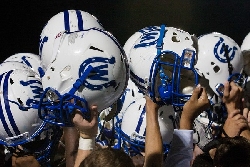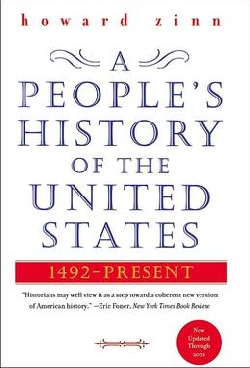BRYCE ON MANAGEMENT
- The best thing to do is not to lose it in the first place.
To use this segment in a Radio broadcast or Podcast, send TIM a request.

There is a general consensus today that there is a complete breakdown in corporate loyalty, that employees no longer maintain allegiances to their companies or their bosses. Years ago people joined companies usually for life. Workers figured if they worked hard enough and kept their noses clean, the company would take care of them. This is no longer the case. Due to the corporate changes implemented over the last thirty years to remain competitive in a world economy, workers now typically live in a state of paranoia and think short-term employment as opposed to long-term, thus affecting their perspective on loyalty.
As some very visible examples of this, consider the dismantling of the studio system in Hollywood and the farm system in Major League Baseball. Instead of being groomed and nurtured from within the system, employees have been forced to become free-agents. Obviously, this encourages individualism as opposed to teamwork. I chuckle when I hear an executive become exasperated that there isn't any loyalty in his company anymore. Why should there be if he promotes a corporate culture that doesn't encourage loyalty?
Let's understand this from the outset, loyalty represents trust. It means a person is confident that something will behave predictably, positively, and to their benefit. As a result, they will willingly pledge their allegiance to it. If it doesn't behave in this manner, loyalty will be shattered.
There are three types of loyalty we commonly come in contact with: Product, Institutional, and Person:
Product Loyalty
I'm sure we all know someone who has allegiances to products. For example, I have a friend whose family has been buying Buick automobiles literally for generations. Even though the body styles have changed over the years, they have found it to be a trustworthy product and have remained loyal customers for decades. I also have a business contact who refuses to fly on anything but Boeing aircraft. Back in 1985 there was a consumer uproar when Coca-Cola changed their formula and introduced "New Coke." Loyal customers finally forced the company to reintroduce the original formula under the name, "Coca-Cola Classic" (as we know it today).
People form attachments to products because they like it, have become familiar with it, and are confident it will perform routinely and to their benefit. They will even go so far as to adapt their lifestyle to the product and become dependent on it, just like a drug, even tolerating modest changes in price and attributes. However, if the product changes radically, becomes unreliable, or skyrockets in price, then loyalty is shattered and the consumer looks for other alternatives. To illustrate, consider the American automotive industry; for years, people loyally purchased American automobiles because they believed them to be well built and tailored to the needs of the American public. Foreign automobiles were originally considered as nothing more than a curiosity that was out of step with the public. Because of some serious missteps by Detroit though, consumer loyalty was shattered and transferred to foreign car manufacturers, particularly the Japanese and Germans who worked overtime to cultivate consumer loyalty.
Loyalty in this regards does not require a product to be best in its class. In fact, a lot of mediocre products command consumer loyalty simply because consumers perceive them as quality goods. For example, I do not consider Microsoft products to be the best of their kind, yet they command incredible consumer loyalty as people perceive them as "state of the art."
Institutional Loyalty
We see instances of institutional loyalty in such things as political parties (Democrats, Republicans), branches of the military (Air Force, Army, Coast Guard, Marines, Navy), countries and communities, charities, sports teams, fraternal organizations, and companies. Here, people fervently believe in the institution they belong to and proudly display their loyalty through such things as lapel pins, bumper stickers, tattoos, web sites or whatever. Most people realize such institutions are not perfect. Nevertheless, they support it through thick and thin simply because they believe it to be a good and noble institution. The only time they will break with it is if the institution radically changes course and is no longer in line with their personal interests and values. For example, we have seen examples of people switching from one political party to another due to a change in policies and interests.
Quite often, the loyalty for an institution or office within it supersedes the loyalty to the person holding the office. We see numerous examples of this in the military and government alone. True, soldiers are more apt to follow certain leaders into battle they believe in, but they will also perform their duty out of a greater sense of loyalty to the institution.
Corporations tend to be a bit different though since the integrity of such institutions are being questioned today. This is probably due to corporate cultures that are failing to maintain the interests of the workers. Whereas I still have friends employed by big businesses who have long tenure with their companies, younger workers tend to lack faith in the institutions and find the company's interests are not compatible with their own. Their only motivation is to pick up a paycheck, nothing more, nothing less. This is somewhat sad as it means their work is not aligned with their interests which does not promote a sense of craftsmanship.
Personal Loyalty
Loyalty to a particular individual is perhaps more common than the other two. This is because people are social animals and tend to identify with the interests of others (the "birds of a feather" phenomenon). In terms of superior/subordinate relationships, with rare exception, we want to believe in our leaders. We want them to worry about charting the right course of action while we worry about tending to our own particular work effort. People are more inclined to follow a leader, even through the most difficult of times, whom they are loyal to than someone they do not trust. Understand this though, loyalty at this level is a two-way street; not only does a manager require the loyalty of his workers, the workers require the loyalty of the manager. This requires effective social and communications skills (people skills). The manager must demonstrate he knows what he is doing, knows the right path to take, and maintains the interests of his subordinates. Conversely, the workers must demonstrate to the manager they are willing to put forth the necessary effort to see a job through to completion. In other words, both parties depend on each other, which brings us back to trust. And if the trust is ever broken, harmony is disrupted, and the manager and workers begin to work at odds against each other, which, of course, is counterproductive and a very unhealthy working environment.
Rebuilding Loyalty
If our trust in someone or something is broken, it is difficult to repair, but not impossible. If Product Loyalty is broken, consumer confidence has to be rebuilt; If Institutional Loyalty is broken, the corporate culture has to be overhauled, and; If Personal Loyalty is broken, it will be the most difficult to correct due to the human dynamics involved. In any event, rebuilding loyalty will be a long and costly process. The best thing to do is not to lose it in the first place.
Loyalty is broken when expectations radically diverge from what happens in practice. People are willing to forgive errors or indiscretions to a point, primarily because as creatures of habit we are comfortable with the status quo and do not necessarily want to change, but if problems become significant without any sign of being remedied, people will lose patience and faith in the object of attention. Let's take the 1985 Coca-Cola incident as an example; had the company made a minor change in the Coke formula, it probably would have been accepted. They didn't. The "New Coke" formula was a radical departure from the old formula. Regardless of the considerable marketing hype of the new product, customers lost confidence in it and started a rebellion to reintroduce the old formula.
Worker loyalty is lost when they become convinced their interests are not being maintained by management, and lack confidence in the direction of the company. This typically occurs when:
* Promises are not kept by management.
* Worker jobs are in peril of being outsourced.
* The company is losing market share.
* The workers do not understand the deployment or withdrawal of certain products or services.
Whether such scenarios are real or not, worker loyalty will be lost if management's judgment is perceived as questionable. A lot of this can be corrected simply by effective communications to clear up misunderstandings and to explain the rationale for a course of action. Even if the chips are down, workers are more likely to remain loyal if they understand and believe in the course management has plotted.
Worker loyalty in management is also based on ethics and quality. If the actions of management are perceived as unscrupulous or unsavory, workers will quickly lose faith in them. Further, if workers do not have confidence in the quality of the products or services they are producing and selling (that they know them to be based on inferior workmanship), this too will be a bad reflection of management's integrity.
Look, its really quite simple, workers want to be treated fairly, lead a worthy and meaningful life, and have confidence in the direction of their company. This requires management to improve their people skills, refine the corporate culture, and enact effective communications. In return, management should rightfully expect loyalty from the work force.
Deeds speak louder than words. In order for management to be credible with workers, they must demonstrate they have the best interests of their employees in mind. Let me give you an example, every once and awhile in Major League Baseball you see a manager charge out to an umpire during a game to challenge a call and becomes quite vocal and animated (Earl Weaver and Billy Martin were legendary in this regards). Quite often, such challenges are done more for demonstrative purposes as opposed to actually refuting a call by the umpire. Basically, the histrionics are used by the managers to tell their own team that he believes in his players and is willing to fight to protect their interests. Now I'm not suggesting that a corporate officer or manager needs to pick a fight with someone, but some public demonstration of his sincerity is needed to express his commitment to his workers, be it a reward, a testimony, a recognition or whatever; something to demonstrate he has the best interests of his employees in mind. This includes affecting the corporate culture and establishing the proper work environment. Some managers have little sensitivity for the type of work their people have to perform. In fact, they prefer a master/slave relationship thereby elevating their ego, but if they create an environment that empowers employees and treats them like professionals, thereby giving them a sense of purpose, they tend to become more dedicated and loyal to the company.
Some people contend you can buy loyalty. I do not subscribe to this notion. In this situation, people will only be loyal as long as the cash continues to roll in. When it stops (or if someone outbids another), people move on. Do not confuse loyalty with bribery. Loyalty means you believe in something and are willing to stand by it through good times as well as bad.
Conclusion
Years ago, Les Matthies, the legendary "Dean of Systems" admonished me, "As long as someone provides you with a job, be loyal to that person; don't gossip and ridicule him; do your job, and do it right. If you don't like the person, then get out and do something else." What worries me is that Les' sentiments are lost in today's world. Loyalty is rapidly becoming a lost virtue. Interestingly, I have met a lot of people in recent years complaining how loyalty is lost in corporate America, as well as other institutions such as nonprofit organizations. These same people all want to see loyalty become part of our core values again, but they are all waiting for someone else to take the first step in making this happen. If you believe in the necessity of loyalty, that it adds value to our lives, then it behooves all of us to take the first step.
Always remember: Loyalty = Trust
First published: October 16, 2006
Keep the Faith!
Note: All trademarks both marked and unmarked belong to their respective companies.
Copyright © 2017 by Tim Bryce. All rights reserved.
NEXT UP: LOSING IT - And the private hell you go through "finding it."
Listen to Tim on
WZIG-FM (104.1) in Palm Harbor,FL;
KIT-AM (1280) in Yakima, Washington
"The Morning News" with hosts Dave Ettl & Lance Tormey (weekdays. 6:00-9:00am Pacific). Or tune-in to Tim's channel on
YouTube. Click for
TIM'S LIBRARY OF AUDIO CLIPS.
 I wonder how much of sex education is learned through television, the Internet, and movies these days? Probably more than we know. As a result, I suspect parents spend considerably less time discussing it with their children than my generation. Back in my day, sex was a subject few people openly discussed, but I'm sure they were just as preoccupied with it. Even though "Playboy" was coming into vogue, nobody discussed such things as erectile dysfunction, social diseases, or openly joked about human sexual anatomy as they do today on prime time. Bawdy jokes were told privately or in Las Vegas. Even tampon ads in magazines were considered risque. The movie "Goldfinger" broke a lot of ground in raising sexual awareness though. Everyone knew what "Pussy Galore" meant, and still chuckle about it to this day.
I wonder how much of sex education is learned through television, the Internet, and movies these days? Probably more than we know. As a result, I suspect parents spend considerably less time discussing it with their children than my generation. Back in my day, sex was a subject few people openly discussed, but I'm sure they were just as preoccupied with it. Even though "Playboy" was coming into vogue, nobody discussed such things as erectile dysfunction, social diseases, or openly joked about human sexual anatomy as they do today on prime time. Bawdy jokes were told privately or in Las Vegas. Even tampon ads in magazines were considered risque. The movie "Goldfinger" broke a lot of ground in raising sexual awareness though. Everyone knew what "Pussy Galore" meant, and still chuckle about it to this day. Tim Bryce is a writer and the Managing Director of M&JB Investment Company (M&JB) of Palm Harbor, Florida and has over 40 years of experience in the management consulting field. He can be reached at timb001@phmainstreet.com
Tim Bryce is a writer and the Managing Director of M&JB Investment Company (M&JB) of Palm Harbor, Florida and has over 40 years of experience in the management consulting field. He can be reached at timb001@phmainstreet.com I cleaned out my e-mail address book recently. I equate this task to
I cleaned out my e-mail address book recently. I equate this task to  The following is an excerpt from my book, "MORPHING INTO THE REAL WORLD - A Handbook for Entering the Work Force" which is a survival guide for young people as they transition into adult life. The book offers considerable advice regarding how to manage our personal and professional lives. As a part of this, I found it necessary to describe the four types of personalities commonly found in the work place.
The following is an excerpt from my book, "MORPHING INTO THE REAL WORLD - A Handbook for Entering the Work Force" which is a survival guide for young people as they transition into adult life. The book offers considerable advice regarding how to manage our personal and professional lives. As a part of this, I found it necessary to describe the four types of personalities commonly found in the work place. As a kid, I had an impressive collection of comic books, but as you grow older mothers have a tendency to clean out closets and dispose of such debris. Although I was able to save my baseball cards, my comic book collection was sacrificed to the garbage man. It was a pity too as my collection would probably be worth a small fortune today, but such is life. As a youngster, I was more of a fan of DC Comics as opposed to Marvel, but they were all enjoyable in their own way. I tended to gravitate to Superman along with the various manifestations, e.g., Action Comics, Superboy, Jimmy Olsen, Justice League of America, etc.
As a kid, I had an impressive collection of comic books, but as you grow older mothers have a tendency to clean out closets and dispose of such debris. Although I was able to save my baseball cards, my comic book collection was sacrificed to the garbage man. It was a pity too as my collection would probably be worth a small fortune today, but such is life. As a youngster, I was more of a fan of DC Comics as opposed to Marvel, but they were all enjoyable in their own way. I tended to gravitate to Superman along with the various manifestations, e.g., Action Comics, Superboy, Jimmy Olsen, Justice League of America, etc.  I played High School football from 1968-1971 in a little town in the northern suburbs of Cincinnati, Ohio. Our team, the Wyoming Cowboys, had a winning tradition for as long as I can remember. We won numerous championships over the years and were always considered a contender even against much larger schools. In 1962, we had a team who not only went undefeated, but didn't allow a single point to be scored by their opponents, racking up a record of 446-0 points. Baseball, basketball, and track were all well represented, but football was king, not just then but now as well. This year, the team went 10-0 to win the league championship and play in the Ohio state playoffs.
I played High School football from 1968-1971 in a little town in the northern suburbs of Cincinnati, Ohio. Our team, the Wyoming Cowboys, had a winning tradition for as long as I can remember. We won numerous championships over the years and were always considered a contender even against much larger schools. In 1962, we had a team who not only went undefeated, but didn't allow a single point to be scored by their opponents, racking up a record of 446-0 points. Baseball, basketball, and track were all well represented, but football was king, not just then but now as well. This year, the team went 10-0 to win the league championship and play in the Ohio state playoffs. Isn't it amazing the amount of paperwork required just to live on this planet? There are a variety of certificates you need, such as birth, wedding, and occupational. Even after you pass away, the paper mill continues to churn out death certificates on your behalf. Then there are bank statements, bills, membership information and notices from all of the institutions you belong to. Let's not forget deeds, mortgages, warranties, titles, contracts, agreements, and permits for everything from fishing and hunting to operating automobiles and machinery, not to mention firearms if you are so inclined. My insurance and medical paperwork alone probably represents a small Redwood. Then there are, of course, the countless applications you must complete for a variety of purposes.
Isn't it amazing the amount of paperwork required just to live on this planet? There are a variety of certificates you need, such as birth, wedding, and occupational. Even after you pass away, the paper mill continues to churn out death certificates on your behalf. Then there are bank statements, bills, membership information and notices from all of the institutions you belong to. Let's not forget deeds, mortgages, warranties, titles, contracts, agreements, and permits for everything from fishing and hunting to operating automobiles and machinery, not to mention firearms if you are so inclined. My insurance and medical paperwork alone probably represents a small Redwood. Then there are, of course, the countless applications you must complete for a variety of purposes. I do not believe there are too many things more aggravating than misplacing something of value, be it keys, jewelry, a wallet or whatever. It's maddening. When you first become aware something is missing, you initially believe you know its location which, of course, you do not. Terror sets in when you realize it is not there. Your disposition goes from calm concern to desperate panic in a few scant seconds depending on the value of the object and where you believe you lost it, such as in a public venue like a restaurant. In addition to the object of your concern, you also lose your personality in the process.
I do not believe there are too many things more aggravating than misplacing something of value, be it keys, jewelry, a wallet or whatever. It's maddening. When you first become aware something is missing, you initially believe you know its location which, of course, you do not. Terror sets in when you realize it is not there. Your disposition goes from calm concern to desperate panic in a few scant seconds depending on the value of the object and where you believe you lost it, such as in a public venue like a restaurant. In addition to the object of your concern, you also lose your personality in the process. There is a general consensus today that there is a complete breakdown in corporate loyalty, that employees no longer maintain allegiances to their companies or their bosses. Years ago people joined companies usually for life. Workers figured if they worked hard enough and kept their noses clean, the company would take care of them. This is no longer the case. Due to the corporate changes implemented over the last thirty years to remain competitive in a world economy, workers now typically live in a state of paranoia and think short-term employment as opposed to long-term, thus affecting their perspective on loyalty.
There is a general consensus today that there is a complete breakdown in corporate loyalty, that employees no longer maintain allegiances to their companies or their bosses. Years ago people joined companies usually for life. Workers figured if they worked hard enough and kept their noses clean, the company would take care of them. This is no longer the case. Due to the corporate changes implemented over the last thirty years to remain competitive in a world economy, workers now typically live in a state of paranoia and think short-term employment as opposed to long-term, thus affecting their perspective on loyalty. To most Americans, it is unsettling to watch historical statues toppled and the names of our forefathers besmirched. We used to hold these people in reverential awe, such as George Washington, Thomas Jefferson, Benjamin Franklin, and Andrew Jackson. We certainly knew they weren't perfect, but their accomplishments in the birth of our nation greatly overshadowed their flaws. Even the southern soldiers during the Civil War were held in high regard afterwards by both sides for the bloody lesson the country had to learn the hard way. Time eventually healed the nation.
To most Americans, it is unsettling to watch historical statues toppled and the names of our forefathers besmirched. We used to hold these people in reverential awe, such as George Washington, Thomas Jefferson, Benjamin Franklin, and Andrew Jackson. We certainly knew they weren't perfect, but their accomplishments in the birth of our nation greatly overshadowed their flaws. Even the southern soldiers during the Civil War were held in high regard afterwards by both sides for the bloody lesson the country had to learn the hard way. Time eventually healed the nation. As I have been involved with a variety of nonprofit organizations over the years, I am often saddled with the task of producing the group's newsletter. Maybe it's because I know how to string a few words together and have worked with computers for more years than I care to remember. Nonetheless, I have probably produced over a thousand newsletters over the years for management groups, technology associations, homeowner groups, and fraternal organizations. Because of this, I like to believe I have learned a thing or two over the years about these publications, the first being they should never be taken for granted. Too often I see newsletters prepared frivolously where the same verbiage is spewed out month after month thereby become very predictable and quite boring. I know of newsletters where the same copy is used year after year and nothing changes except the names of the club's officers. Surprisingly nobody notices. There is nothing wrong with devising a standard format, which readers tend to adapt to, but if there is no "news" in the newsletter, in all likelihood it will only be used to line the bottom of a birdcage. However, if they are meaningful, not only will they be read, they'll also be kept for future reference.
As I have been involved with a variety of nonprofit organizations over the years, I am often saddled with the task of producing the group's newsletter. Maybe it's because I know how to string a few words together and have worked with computers for more years than I care to remember. Nonetheless, I have probably produced over a thousand newsletters over the years for management groups, technology associations, homeowner groups, and fraternal organizations. Because of this, I like to believe I have learned a thing or two over the years about these publications, the first being they should never be taken for granted. Too often I see newsletters prepared frivolously where the same verbiage is spewed out month after month thereby become very predictable and quite boring. I know of newsletters where the same copy is used year after year and nothing changes except the names of the club's officers. Surprisingly nobody notices. There is nothing wrong with devising a standard format, which readers tend to adapt to, but if there is no "news" in the newsletter, in all likelihood it will only be used to line the bottom of a birdcage. However, if they are meaningful, not only will they be read, they'll also be kept for future reference. Something I find interesting in our society is our predisposition for being rude and offensive. About a year ago I saw a high school graduation ceremony at a football field where the parents were outright obnoxious. Instead of quietly sitting in the stands and offering polite applause at appropriate moments, it was a ruckus affair where parents pushed and shoved, shouted and whistled at their kids, some even stepped over the lines and on to the field reserved for the students so they could take a picture of their offspring, something they could have done afterwards. When they were asked by the police to step off the field and go back to their seats in the stands, they ignored them and even told them to mind their own business. It was quite ugly. So much so, this year the high school sent forms to the parents stipulating the decorum they must follow. Further, the forms had to be signed by the parents and if they violated the agreement, the student's diploma would not be presented that day. I found this a bit mind boggling. Usually, it is the students that are asked to behave properly, not the parents, but I guess the times have changed.
Something I find interesting in our society is our predisposition for being rude and offensive. About a year ago I saw a high school graduation ceremony at a football field where the parents were outright obnoxious. Instead of quietly sitting in the stands and offering polite applause at appropriate moments, it was a ruckus affair where parents pushed and shoved, shouted and whistled at their kids, some even stepped over the lines and on to the field reserved for the students so they could take a picture of their offspring, something they could have done afterwards. When they were asked by the police to step off the field and go back to their seats in the stands, they ignored them and even told them to mind their own business. It was quite ugly. So much so, this year the high school sent forms to the parents stipulating the decorum they must follow. Further, the forms had to be signed by the parents and if they violated the agreement, the student's diploma would not be presented that day. I found this a bit mind boggling. Usually, it is the students that are asked to behave properly, not the parents, but I guess the times have changed.